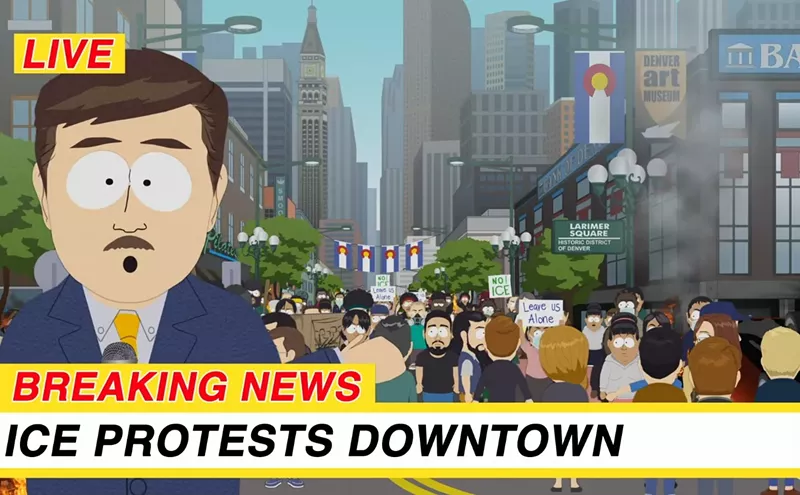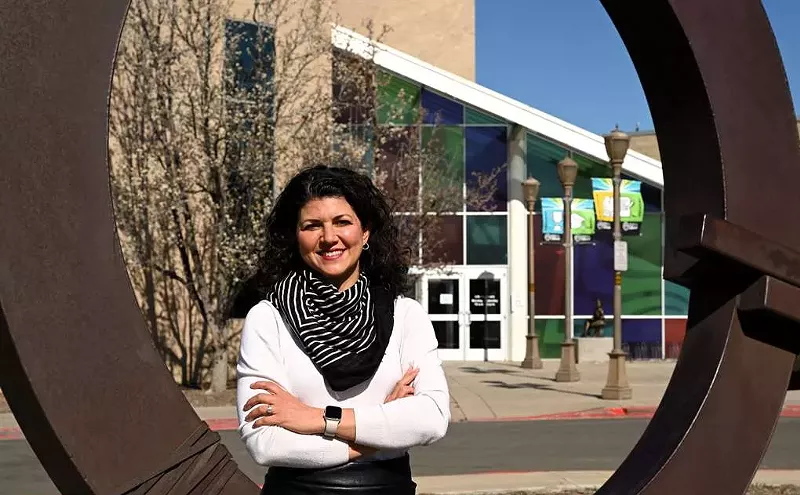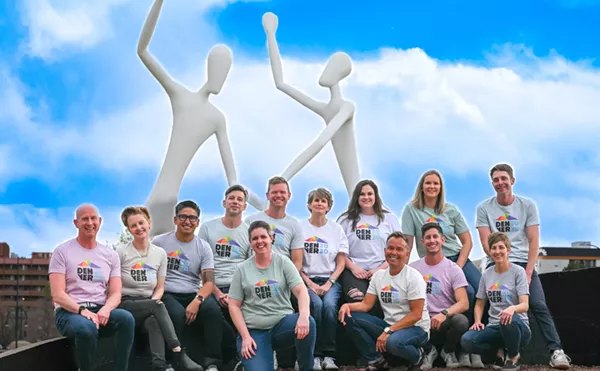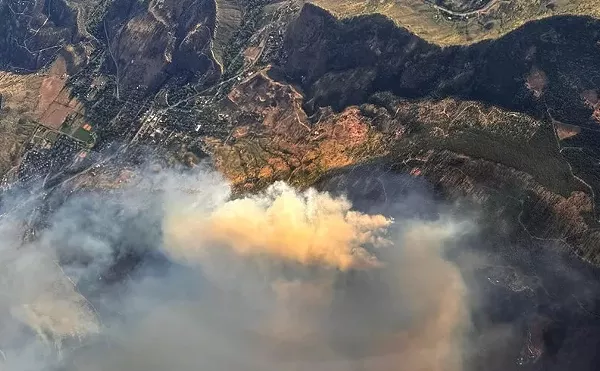Pondering the fat Blue Book issued in advance of this year's statewide elections, explaining the pros and cons of no less than half a dozen proposed amendments to the Colorado Constitution, it's easy to understand why many voters might give a big thumbs-up to Amendment 71, which proposes to make it more difficult for future constitutional amendments to make their way onto the ballot. Fewer choices means a shorter ballot and less time spent by campaign-weary citizens trying to figure out the right thing to do.
But as the recent interviews by Michael Roberts with proponents of the "Raise the Bar" campaign as well as its opponents illustrate, the issues underlying Amendment 71's restrictions on ballot access are more complex than they appear. The battle has drawn a collection of odd bedfellows on both sides; a coalition of chamber of commerce types, rural economic interests and mainstream lawmakers in support of the measure, and a gaggle of fractivists, tax crusaders, civil-liberties advocates and others who favor a vigorous citizen-initiative process opposed to it.
Of the two dozen states that allow some form of ballot initiatives or legislative referendums, Colorado has been among the liveliest in actually putting this form of direct democracy to use. Not surprisingly, this has been a sore point for political leaders who believe in shaping policy in the legislature or the governor's office, not in the streets. Aggravated by citizen revolts that have produced measures such as the Taxpayer's Bill of Rights, opponents of citizen initiatives have tried repeatedly in recent years to make the petition-gathering process more expensive, more heavily regulated and generally inaccessible to all but the most well-heeled political causes.
Amendment 71 is the latest (and, in many ways, the slickest) of these efforts to "protect the state constitution" from endless amendments. By requiring that petition signatures be collected statewide, with at least 2 percent of the registered voters in each of 35 state senate districts in support of the measure, it claims to make the process more representational and balanced while actually making it more impossible, since only the most well-financed petition campaigns could afford to gather enough signatures to pass muster in all corners of the state. It also would require a total of 55 percent of all votes cast, rather than a simple majority, for an amendment to become law — except when the proposed amendment merely repeals an existing provision.
Critics of 71 have been quick to point out that its backers didn't bother to gather signatures from 2 percent of the voters in every district themselves, even though that's going to be the "bar" if Raise the Bar passes (which will require only 50 percent of the voters plus one, not 55 percent). But even more telling is the role that the oil and gas industry has played in bankrolling the campaign. Although ads stress the broad support for the measure from various quarters, including the current and past four governors of the state, there's no denying that most of the cash — around $3 million of the $4.1 million in contributions showing up in campaign-finance reports to date — is coming from energy companies and committees financed by them.
That's no surprise, given how much money and political capital the industry has expended in fending off grassroots efforts to impose more local control on drilling sites and the disposal of wastewater generated by the fracking process. In 2014, two anti-fracking measures made the ballot, with considerable financial and political backing from U.S. Representative Jared Polis — only to be withdrawn after Polis struck a last-minute deal with Governor John Hickenlooper to form a commission that would hammer out more local controls over fracking operations.
The recommendations of that panel were seen as too watered down to suit many fractivists, though, leading to another round of petitions this summer for measures that would give local governments more authority and impose a mandatory 2,500-foot setback around oil and gas rigs from homes, hospitals, schools and other sensitive areas. Proponents failed to gather enough signatures for either of those proposals to make the ballot, but after spending $20 million fighting the proposals, the industry isn't eager to go through that process again.
The solution? Use the petition process to nullify future petition efforts — unless they're very well funded.
In his interview with Roberts, campaign consultant Josh Penry maintained that it's "silly" to suggest that Amendment 71 is about fracking. He cited support from various business sectors and farmers concerned about "a lot of California goofballs who try to bring their ideas about how best to manage their land or what to do with the state's water resources — trying to essentially change their property rights or the way they live their lives."
But it's also true that a wide spectrum of interests that value the citizen-initiative process — from the conservative Independence Institute's Jon Caldara to liberal Polis to tree-hugging fractivists to the Humane Society of the United States — are vehemently opposed to the measure. And their arguments, by and large, don't sound nearly as goofy as the idea of limiting ballot measures to those who can afford to pay top dollar for them.

Audio By Carbonatix
[
{
"name": "GPT - Billboard - Slot Inline - Content - Labeled - No Desktop",
"component": "23668565",
"insertPoint": "2",
"requiredCountToDisplay": "2"
},{
"name": "STN Player - Float - Mobile Only ",
"component": "23853568",
"insertPoint": "2",
"requiredCountToDisplay": "2"
},{
"name": "Editor Picks",
"component": "17242653",
"insertPoint": "4",
"requiredCountToDisplay": "1"
},{
"name": "Inline Links",
"component": "18838239",
"insertPoint": "8th",
"startingPoint": 8,
"requiredCountToDisplay": "7",
"maxInsertions": 25
},{
"name": "GPT - 2x Rectangles Desktop, Tower on Mobile - Labeled",
"component": "24956856",
"insertPoint": "8th",
"startingPoint": 8,
"requiredCountToDisplay": "7",
"maxInsertions": 25
},{
"name": "Inline Links",
"component": "18838239",
"insertPoint": "8th",
"startingPoint": 12,
"requiredCountToDisplay": "11",
"maxInsertions": 25
},{
"name": "GPT - Leaderboard to Tower - Slot Auto-select - Labeled",
"component": "17676724",
"insertPoint": "8th",
"startingPoint": 12,
"requiredCountToDisplay": "11",
"maxInsertions": 25
}
]











